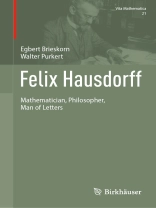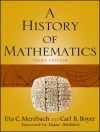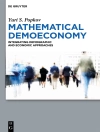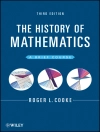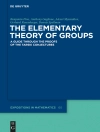Felix Hausdorff is a singular phenomenon in the history of science. As a mathematician, he played a major role in shaping the development of modern mathematics in the 20th century. He founded general topology as an independent mathematical discipline, while enriching set theory with a number of fundamental concepts and results. His general approach to measure and dimension led to profound developments in numerous mathematical disciplines, and today Hausdorff dimension plays a central role in fractal theory with its many fascinating applications by means of computer graphics. Hausdorff ’s remarkable mathematical versatility is reflected in his published work: today, no fewer than thirteen concepts, theorems and procedures carry his name. Yet he was not only a creative mathematician – Hausdorff was also an original philosophical thinker, a poet, essayist and man of letters. Under the pseudonym Paul Mongré, he published a volume of aphorisms, an epistemological study, abook of poetry, an oft-performed play, and a number of notable essays in leading literary journals. As a Jew, Felix Hausdorff was increasingly persecuted and humiliated under the National Socialist dictatorship. When deportation to a concentration camp was imminent, he, along with his wife and sister-in law, decided to take their own lives.
This book will be of interest to historians and mathematicians already fascinated by the rich life of Felix Hausdorff, as well as to those readers who wish to immerse themselves in the intricate web of intellectual and political transformations during this pivotal period in European history.
Содержание
Preface.- Notice for the Reader.- I. Family Background and Early Intellectual Interests.- Hausdorff’s Childhood and Youth.- Hausdorff’s Student Years and Short-lived Astronomical Career.- Hausdorff’s Early Mathematical Works.- II. A Double Life: the Mathematician Felix Hausdorff and the Philosopher/Man of Letters Paul Mongré.- Paul Mongré as a Philosopher.- Paul Mongré: Author, Essayist and Critic.- Mathematics takes First Priority.- III. Hausdorff’s Crowning Mathematical Works.- Hausdorff at the Pinnacle of his Career.- Full Professor in Bonn, 1921–1933.- Hausdorff’s Life during the Nazi Dictatorship.- Bibliography.- Name Index.
Об авторе
Egbert Brieskorn was professor of mathematics in Göttingen and Bonn and visiting professor at a number of foreign universities. Among mathematicians he was known for his fundamental contributions to the singularity theory of complex hypersurfaces. In Bonn he initiated the project ‘Felix Hausdorff — Gesammelte Werke'(10 volumes, 2001-2020) and served as head of the group of five editors responsible for the complete edition. For many years he worked on a biography of Hausdorff, which was to appear in the Hausdorff edition, though only about half of it was completed at the time of his death. Brieskorn was also the author of original and successful textbooks. He devoted decades of work to ecology and species conservation, for which he received the Cross of Merit on Ribbon of the Federal Republic of Germany.
Walter Purkert was professor of the history of mathematics in Leipzig and visiting professor in Wuppertal. He later taught historyof mathematics in Bonn, where as a starting point for the Hausdorff editorial project, he published a finding aid with descriptions of the contents of Hausdorff’s extensive estate. Thereafter, he served full-time as coordinator of the edition, overseeing the work of its editors, while contributing to a number of the volumes. After Egbert Brieskorn’s death, he spent several years completing their Hausdorff biography, published in 2018 as Volume IB of the edition. Purkert also wrote a well-received biography of Georg Cantor. He is a corresponding member of the Académie Internationale d’Histoire des Sciences in Paris.
